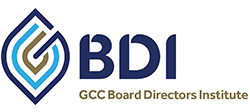
GABY EL HAKIM
Chief Legal Officer and Corporate Secretary, National Bank of Bahrain (NBB)
Mr. Gaby El Hakim joined NBB in 2017. He previously worked with GFH Financial Group and BNP Paribas. Prior to that he was in private practice. He has over 17 years of experience practising law in areas such as corporate and investment banking, Islamic finance, structured finance, capital markets, private equity, regulatory investigation and dispute resolutions. He is responsible for handling all legal matters and advising management and the Board with respect to all aspects of the business. He holds an LLM in Banking and Finance from Osgood Hall Law School, York University, Canada and an LLB (Licence en Droit Libanais) from Sagesse University School of Law, Beirut, Lebanon, as well as several postgraduate qualifications. Mr. El Hakim is the Vice Chairman of the Lawyer’s Committee of ICC Bahrain, Chamber of Industry and Commerce, a member of ICC Paris Commission on Arbitration and ADR, and serves as a board member of ICC Bahrain.
How has GCC BDI supported you in a corporate governance project?
GCC BDI has been helpful in supporting the development of our corporate governance frameworks by way of providing pragmatic, practical training to our executives and Board in gauging risk appetite across the organisation. Such interactive sessions have assisted the Bank in developing a broader perspective on its strategic direction.
Do you have any guidance for other companies who are undertaking corporate governance initiatives?
Corporate governance, when done well, delivers value to all stakeholders in a business, such as shareholders, board members, executives and customers. As such, it should be considered as a beneficial exercise, which can deliver and unlock value to a business and shield it from unnecessary liabilities.
Being known to strive for well-developed and balanced governance practices, ethical standards and fair dealing of itself, creates value through the perception of trust and confidence it broadly engenders, through the communities businesses operate in. This is very important to our organisation.
As such, the principal guidance I would offer other companies is that corporate governance should be embraced across all levels of an organisation and should not be seen simply as a matter where the minimum compulsory effort is all that should be given to it. Advantages to be gained will be reflected in the company’s ability to identify and mitigate risks, manage crises and respond to changing market trends while increasing market confidence as a whole.
What has been the biggest corporate governance initiative your company has undertaken and how has it improved your firm’s culture?
One of the major corporate governance initiatives that NBB has recently undertaken with the support of GCC BDI, was the recent review and update of its authority matrix . The exercise has reinforced NBB’s core values of responsibility and transparency and has had a fundamentally positive impact on the culture of NBB. Through our updated authority matrix, NBB has clearer guidelines on how authority and responsibility are designated in relation to a number of key decision-making powers. This has supported NBB’s growth in its co-ordinated and team-based environment.
How can effective corporate governance policies improve the bottom line?
An effective corporate governance framework forms part of creating an open and transparent culture within an organisation. It allows a common understanding of the expectations which apply from the top all the way down. As such, it creates a sense of unity of purpose and clarity of approach within an organisation, which staff appreciate. It also forms a core part of the risk analysis and protection framework within an organisation. This helps detect and prevent prospective potential liabilities and so reduces the costs associated with failure to uphold an appropriate risk and reporting framework where otherwise, for example, conflicts of interests would lead to an organisation making decisions it would not otherwise take and open the door to sub-optimal outcomes. Ensuring personal accountability, early internal reporting of potential issues, ethical standards across an organisation and building in the advice of independent expertise in relation to strategy, will ultimately lead to better decisions being made in a more timely and open manner. This, in turn, naturally increases the success rate of initiatives undertaken and allows early detection and mitigation of potentially negative outcomes.



COMMENTS ARE OFF THIS POST